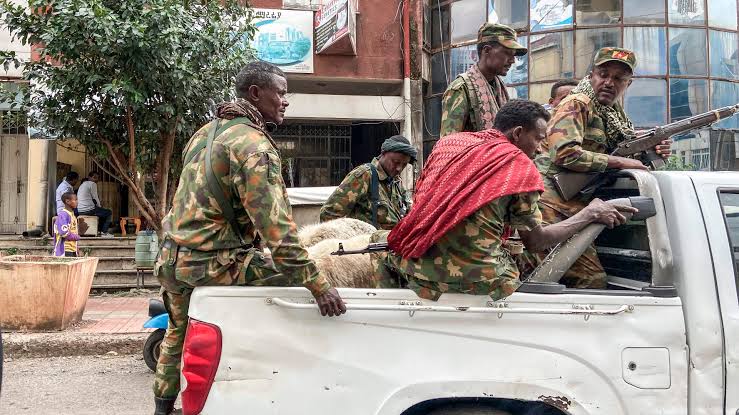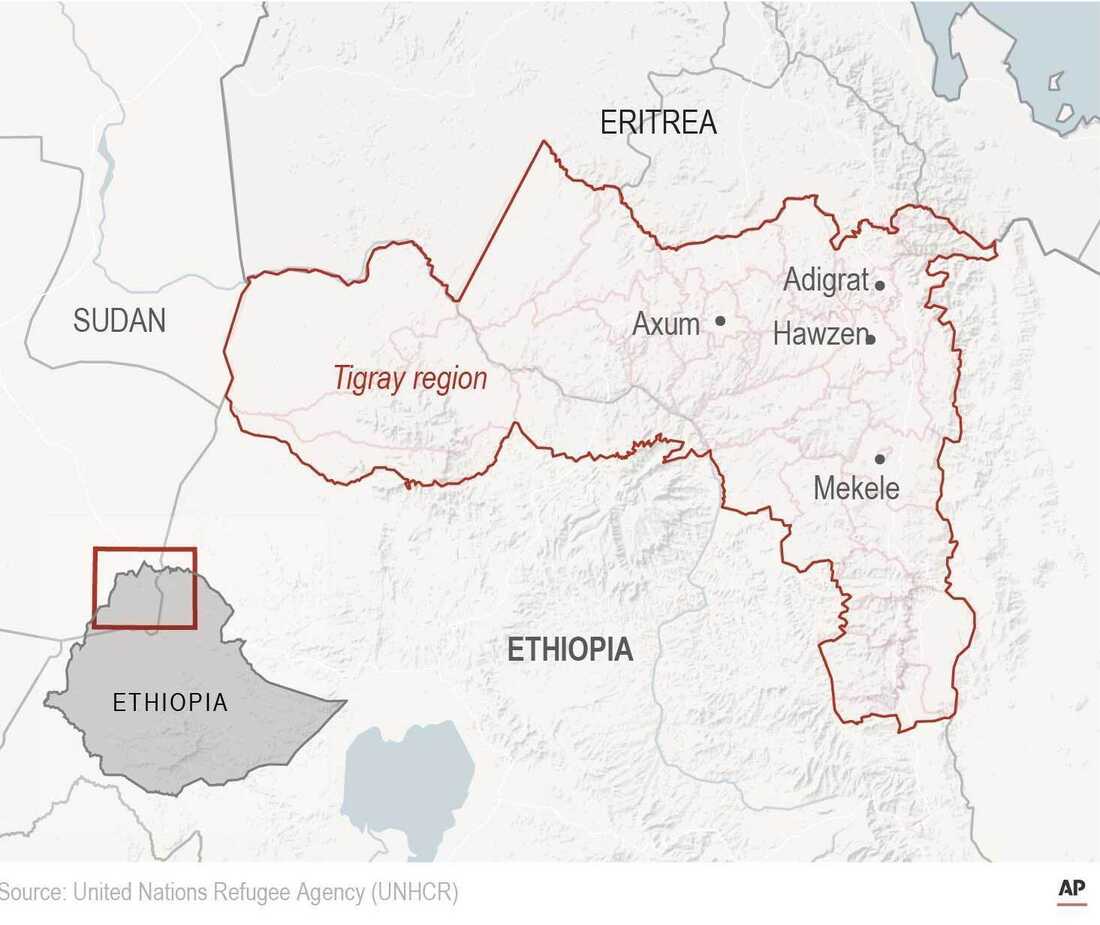UN Decries ‘Extreme Brutality’ In Tigray Conflict As Ethiopia Declares State Of Emergency

UN rights chief, Michelle Bachelet has slammed the extreme brutality characterising the conflict in Ethiopia’s Tigray region, following a joint UN-Ethiopian report warning of possible “crimes against humanity” by all sides.
Bachelet insisted on the need to bring perpetrators of a vast array of rights abuses to justice.
Tigray is Ethiopia’s northernmost region. Bordering Eritrea, it is home to most of the country’s estimated 7 million ethnic Tigrayans. The ethnic group, which accounts for about 6% of Ethiopia’s population, have had an outsized influence in national affairs.

In November 2020, the regional government — controlled by Tigray People’s Liberation Front (TPLF), a leftist political party — launched a full-scale siege of a key Ethiopian military base at Sero, using tanks, heavy guns and mortars.
Calling the TPLF assault a “treason that will never be forgotten,” Ethiopian Prime Minister Abiy Ahmed ordered a federal offensive against the region on November 3, setting off the conflict.
The 2019 Nobel Peace laureate promised a swift victory, but by late June the rebels had regrouped and retaken most of Tigray.
Speaking about how the conflict has turned out since it began, the UN High Commissioner for Human Rights on Wednesday via a statement said;
The Tigray conflict has been marked by extreme brutality. The gravity and seriousness of the violations and abuses we have documented underscore the need to hold perpetrators accountable on all sides.
The report, based on 269 interviews with victims and witnesses, described endemic torture, with victims beaten with electric cables and metal pipes, detained incommunicado and intentionally starved.
And it detailed how thousands of civilians had been forced to flee as a result of killings, rapes, destruction and looting of property, fears of reprisals and ethnic and identity-based attacks, particularly in western Tigray.
The report also highlighted abuses carried out by Eritrean troops, who have provided military support to the Ethiopian government forces, and who had forcefully returned Eritrean refugees in Tigray to Eritrea.
Sexual violence had also been rampant in the conflict, it found, detailing reports of gang rapes by various parties against women and girls, but also men and boys.
The investigators had for instance heard of one 16-year-old boy who was allegedly raped by nine Eritrean soldiers and who later committed suicide.
The joint investigation team called for a further independent investigation into all alleged abuses and prosecution of the perpetrators.
Bachelet’s comments came after a joint investigation by her office and Ethiopian Human Rights Commission (EHRC) into abuses committed by all sides since the Tigray conflict exploded a year ago.
The widely anticipated joint report, which covers the period from November 3, 2020, through June, when the Ethiopian government declared a unilateral ceasefire, found evidence of “serious abuses and violations” by all sides in the conflict.
It pointed to extra-judicial executions, torture and sexual violence among other abuses, and said there were “reasonable grounds to believe that a number of these violations may amount to crimes against humanity and war crimes”.
On Tuesday, Ethiopia declared a nationwide state of emergency after Tigrayan rebels seized two crucial towns in an apparent push towards the capital, state-affiliated media reported.
“The state of emergency is aimed to protect civilians from atrocities being committed by the terrorist TPLF group in several parts of the country,” Fana Broadcasting Corporate reported, referring to Tigray People’s Liberation Front.
In recent days, TPLF has claimed control of two key cities about 400 kilometres (250 miles) from Addis Ababa (country’s capital) and has not ruled out marching on the capital, which has so far not seen any fighting.
Much of northern Ethiopia is under a communications blackout, and access for journalists is restricted, making battlefield claims difficult to verify independently.
Also on Tuesday, officials ordered Addis Ababa residents to register their firearms and prepare to defend their neighbourhoods.
Via AFP.
